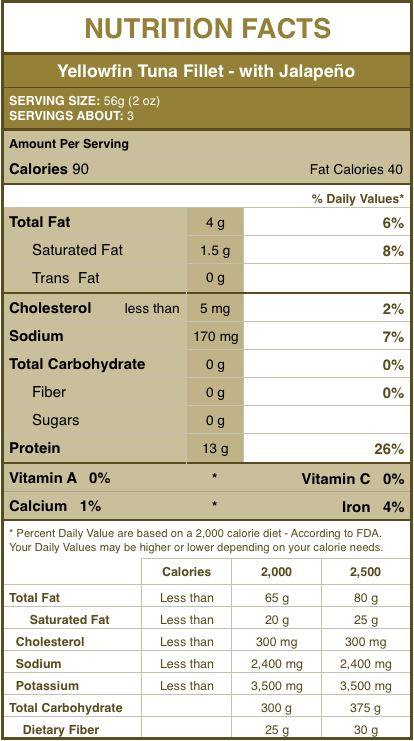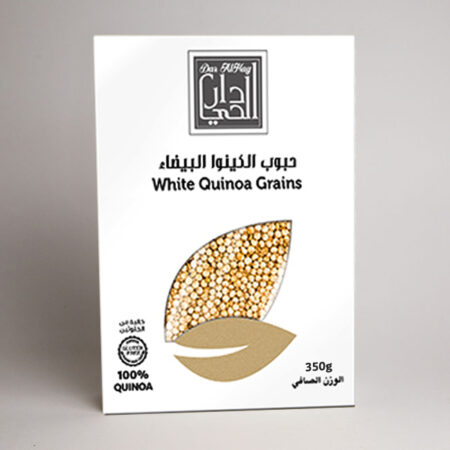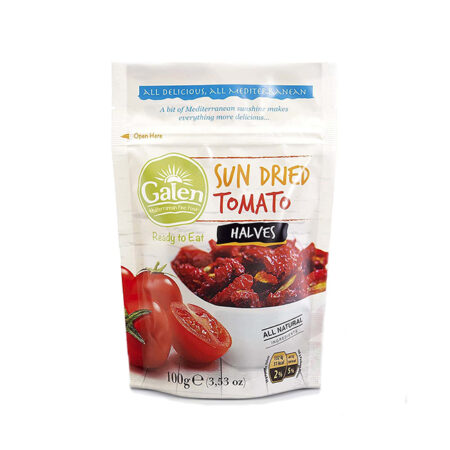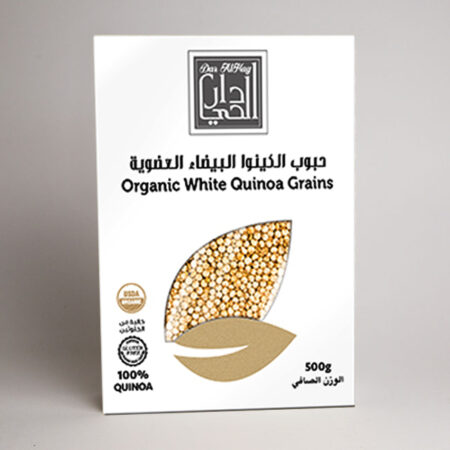Description
Make Yellowfin Tuna Fillet with Jalapeño (with Olive Oil) your next meal choice, as it’s loaded with vitamins and nutrients, low in saturated fat and is an excellent source of protein. It can boost our energy levels and make our body work more effectively.
PRODUCT: Yellowfin Tuna Fillet with Jalapeño (with Olive Oil)
QUANTITY: 190 g (6.7 oz)
BRAND: Dar Al Hay
SHELF LIFE: 48 Months
COUNTRY OF ORIGIN: Costa Rica
100% YELLOWFIN TUNA
WILD CAUGHT
HAND PACKED
GLUTEN FREE
DOLPHIN SAFE
INGREDIENTS:
- Yellowfin Tuna Fish
- Olive Oil (non-hydrogenated)
- Jalapeño Pepper
- Spices
- Salt
Tuna is a saltwater fish that have been fished for since 2000 BC in Phoenicia, and evolutionarily, tuna fish appear to have been developed about 45 million years ago, it belongs to the tribe Thunnini, a sub-grouping of the mackerel family (Scombridae) – which together with the Tunas, also includes the bonitos, mackerels and Spanish mackerels. Thunnini comprises fifteen species across five genera, the sizes of which vary greatly, ranging from the bullet Tuna (max. length: 50 cm (1.6 ft), weight: 1.8 kg (4 lb)) up to the Atlantic Bluefin Tuna (max. length: 4.6 m (15 ft), weight: 684 kg (1,508 lb)). The bluefin averages 2 m (6.6 ft), and is believed to live for up to 50 years.
Tuna and mackerel sharks are the only species of fish that can maintain a body temperature higher than that of the surrounding water. An active and agile predator, the Tuna has a sleek, streamlined body, and is among the fastest-swimming pelagic fish – the Yellowfin Tuna, for example, is capable of speeds of up to 75 km/h (47 mph).Found in warm seas, it is extensively fished commercially, and is popular as a game fish.
With talks of the dangers of high mercury content, many have turned away from fish. However, these reports are made in relation to people who eat fish every day. When eaten in moderation, you can reap the healthy benefits of this tasty fish, while avoiding the negative effects of high levels of mercury in your food.
Some of the many health benefits of Tuna fish include its ability to reduce cardiovascular conditions, stimulate growth and development, lower blood pressure and cholesterol levels, help in weight loss efforts, boost the immune system, increase energy, maintain the health of the skin, increase red blood cell count, prevent cancer, protect against various kidney diseases, reduce general inflammation, and inhibit cell membrane damage.
Make Tuna your next meal choice. It is loaded with vitamins and nutrients, low in saturated fat and is an excellent source of protein.
Tuna Fish is loaded with vitamins and nutrients, low in saturated fat and is an excellent source of protein. With talks of the dangers of high mercury content, many have turned away from fish. However, these reports are made in relation to people who eat fish every day. When eaten in moderation, you can reap the healthy benefits of this tasty fish, while avoiding the negative effects of high levels of mercury in your food.
Here are SOME nutrition facts about Tuna Fish:
1. Protein: You always hear about eggs and various meats being a high source of protein, but what about fish? One of the nutritional highlights of tuna is its high protein content. How high in protein content? Try 23 grams in a serving size of three and a half ounces. Talk about a good source of protein to help keep those muscles strong. Protein is also good for the blood, skin, hair and nails.
2. Stroke: Tuna can help you avoid the risk of having a stroke. A recent study has shown that adults who include one to four servings of fish as a part of their regular diet had a 27 percent lower risk of having an Ischemic Stroke. Five or more servings of fish per week reduced the risk of stroke to 30 percent.
3. Blood Pressure: Tuna has Omega-3 fatty acid, which helps prevent high blood pressure. Studies have shown that foods, like tuna, that contain Omega-3 fatty acids helped test subjects maintain healthy blood pressure. Those who have yet to develop high blood pressure experience an even stronger beneficial effect from Omega-3 fatty acids.
4. Lower Triglycerides: With just two servings of tuna a week, you can lower your triglyceride levels. Why is that a good thing? Triglyceride in the bloodstream indicates the amount of fat being carried. If you have a high level of triglyceride, you are probably also experiencing high levels of low-density lipoprotein (LDL), or “bad cholesterol,” and low levels of high-density lipoproteins (HDL), or “good protein.” To make things simple, you basically want more HDL and less LDL, and eating tuna to lower your triglyceride level is one way to accomplish this.
5. Good for the Heart: A measure of heart rate function known as heart rate variability (HRV), can be increased by eating tuna. Again, the Omega-3 fatty acids of tuna help improve cardiovascular health by increasing HRV. Omega-3 fatty acids also protect your heart from developing abnormal heart rhythms that can be fatal.
6. Heart Disease: A moderate and healthy consumption of tuna can lower the risk of coronary heart disease. The fact that tuna can help improve the ratio of HDL to LDL in the body allows it ward off an increased risk of heart disease, especially when substituted for foods high in saturated fat and cholesterol content.
7. Obesity: Another benefit of the omega-3 fatty acid found in tuna is its ability to reduce the risk of obesity while improving the body’s insulin response. Omega-3 fatty acid is able to stimulate a hormone called leptin, which helps the body’s metabolism while regulating the body’s weight and food intake. Tuna is also low on the glycemic index (GI) with a GI rating of 0, and is low in both calories and fat, making it a good food choice for those struggling with obesity.
8. Immune System: Tuna is a good source of selenium, an antioxidant that helps improve the body’s Immune System. The immune system is a vital part of the body that is integral for fighting off sickness, diseases and infections.
9. B Vitamins: The B Vitamins present in tuna help to build and maintain red blood cells and increase energy. These water-soluble vitamins increase the rate of metabolism, strengthen the immune system and help keep the skin healthy.
10. Cancer: Tuna, and other fatty fish, have been shown in studies to reduce the risk of breast cancer in test subjects who ate it regularly. Other studies have shown that fatty fish, like tuna, have helped reduce the risk of kidney cancer.
When looking for a source of lean protein, tuna is an excellent choice. The fact that it is low in both fat and calories makes it an excellent substitute for dairy products and meats that have a higher fat content. One thing to keep in mind when eating tuna, aside from the mercury content, is a high sodium intake. A three and a half ounce serving of tuna contains 37 milligrams of sodium. High sodium intake can negate the health benefits of tuna by causing high blood pressure, stroke, kidney problems and heart disease. Keep this in mind when seasoning your tuna to avoid an excess of sodium intake.







Reviews
There are no reviews yet.